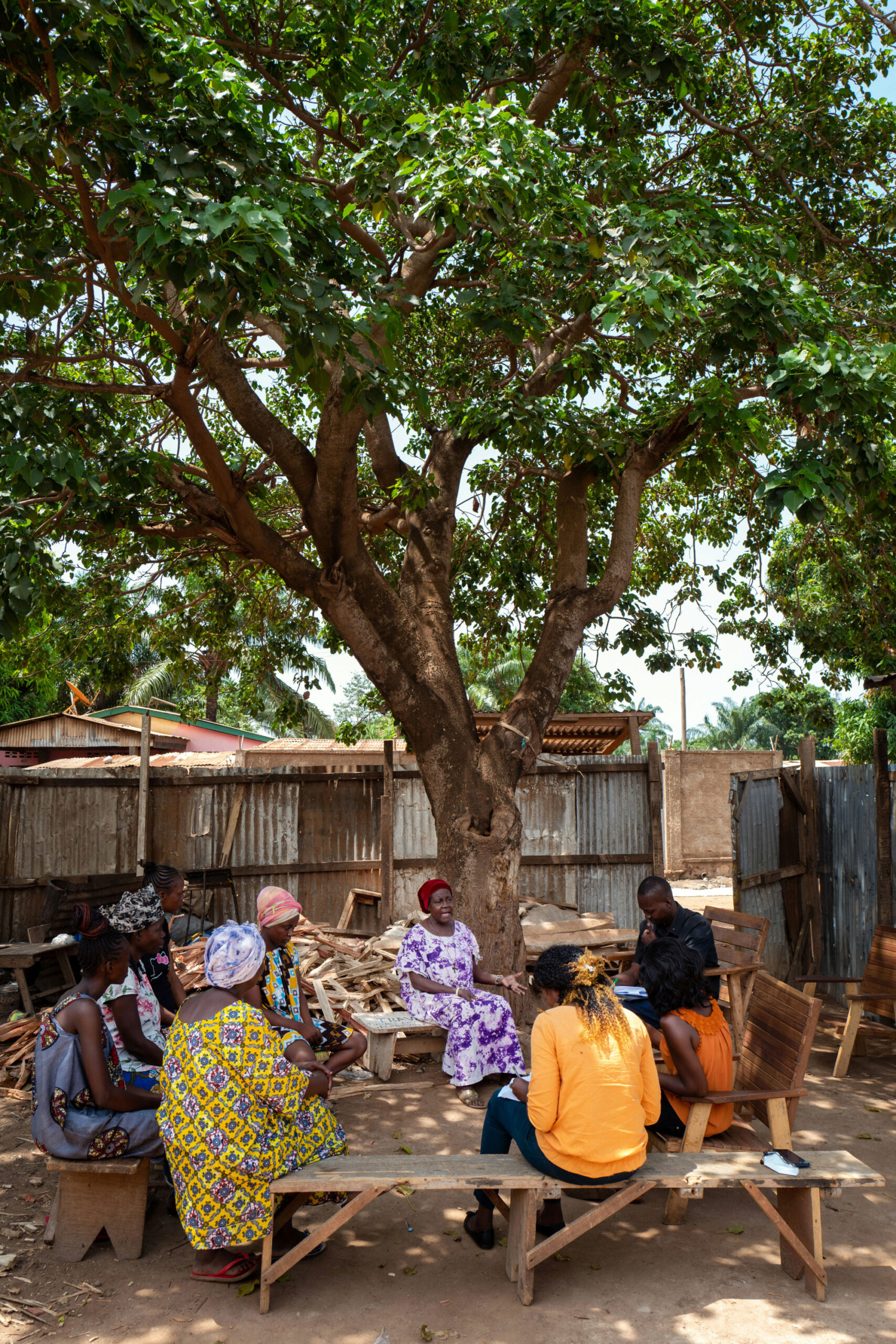In an increasingly uncertain context, our action aims to make an effective contribution to dialogue and the resolution of problems affecting populations facing crises.
CONTRIBUTING TO PEACEFUL, INCLUSIVE, DEMOCRATIC AND JUST SOCIETIES
In a climate as turbulent and unstable as the early months of 2025, it is essential to be clear about our objectives. All of our activities for 2025–2028 share the common objective of fostering more peaceful, inclusive, democratic and just societies. As a recognized, benchmark organization in the field of media and information in crisis contexts, we aim to attract the renewed interest of operational and strategic partners and, through our actions, to make a concrete and effective contribution to dialogue and the resolution of issues affecting local populations facing crises.
To achieve this objective, we have set ourselves four strategic priorities:
1. Provide journalistic content and promote forums for dialogue that respond in depth to the multiple needs of populations facing crises.
2. Support media players and civil society organizations focusing on particular issues to produce and broadcast quality information.
3. Advocate support for general-interest media in crisis situations and publicise the impact of our work to a wider audience.
4. Become an even stronger and more agile organisation.
Fondation Hirondelle keeps the following cross-cutting priorities in mind in its strategy and actions:
– Inclusion: our projects represent diverse genders, religions, languages, ethnicities and minorities, without discrimination. This approach is reflected in our editorial charter and all of our productions.
– Local roots and sustainability: analysing information needs is, by definition, a local action. We strengthen local players and develop innovative solutions to guarantee the sustainability and independence of our media partners.
– Security: in environments that can be high-risk, the security of our staff and partners is a key factor in our decisions. Security depends on rigorous analyses, targeted training and high editorial standards.
METHODS OF INTERVENTION
Fondation Hirondelle will continue to adapt its methods of producing and broadcasting information to the fragility of situations and the needs of local media. In carrying out our projects, we apply, in a context-specific way, some or all of the following methods:
– Supporting and strengthening local partners
– Production and broadcast by Fondation Hirondelle
– Production by Fondation Hirondelle, broadcast by local partners
These approaches enable us to strengthen skills in favour of development, provide useful, local journalism that plays a vital role in complex humanitarian crises, and produce inclusive discussion and debate programmes that contribute to peacebuilding.


